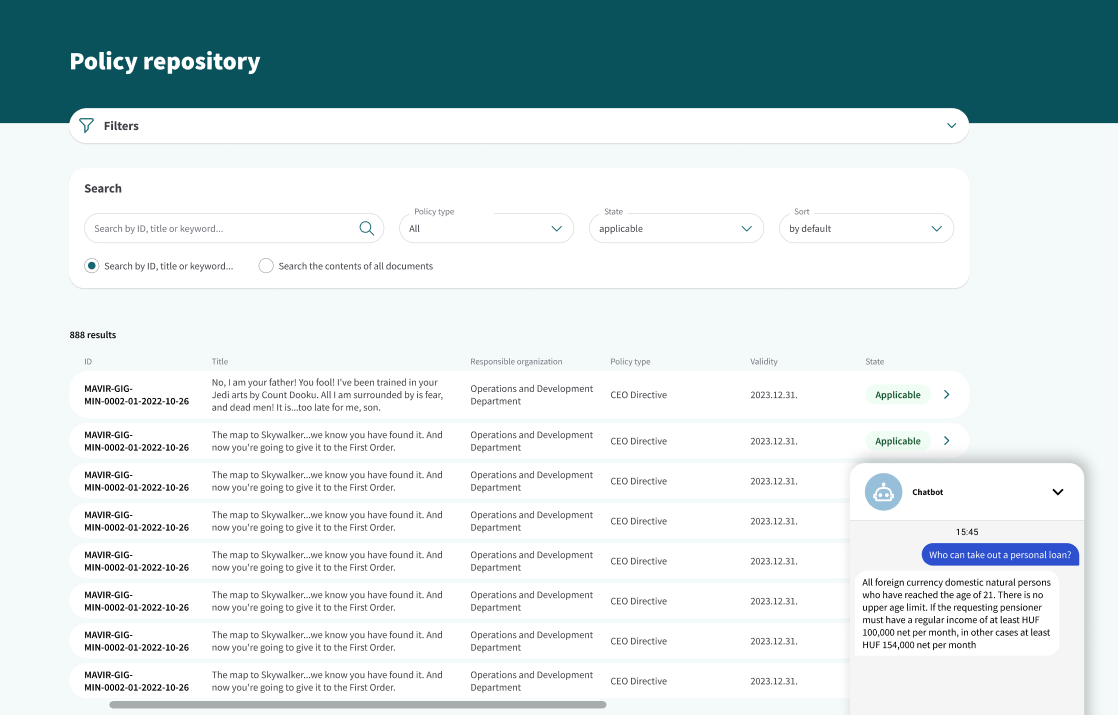
AI-Based Regulatory Repository within the Docuflow platform
The swift advancement of generative artificial intelligence is set to transform how businesses serve their customers, offering more efficient and tailored services.
By employing chatbots and virtual assistants, AI facilitates swift and effective solutions to inquiries and issues for both customers and customer service agents, alongside delivering personalized and relevantcontent.
Businesses that adopt these technologies can provide more efficient customer service, thereby boosting their competitive edge and elevating the customer experience.
With this in mind, we are excited to announce a significant update to the Docuflow Document Routing and Workflow Automation platform.
What is an AI-Based Regulatory Repository?
An AI-based regulatory repository is a digital toolkit that uses artificial intelligence to manage regulatory processes. This includes interpreting rules and regulations, monitoring compliance, and continuously adapting to regulatory changes. The system is capable of learning independently, constantly updating its internal regulatory databases, and adapting to new regulatory environments.
How Does the AI-Based Regulatory Repository Work?
The AI-based regulatory repository fundamentally relies on three main components:
- Data Collection: The system is capable of collecting and processing relevant regulatory documents, such as laws, regulations, and guidelines.
- Analysis and Learning: AI modules analyze the collected data, identify key requirements, and learn from the data to improve regulatory compliance processes.
- Automated Implementation: AI automates compliance processes, including decision-making processes and handling potential irregularities.
In practice, this means that users of the Docuflow platform’s regulatory module can now not only easily search within the internal corporate regulatory repository but also seek the assistance of Avalon AI’s chat module.
This AI-based assistant, which uses the OpenAI language model, not only makes searching more efficient, but also helps with questions about any document in the repository. This innovation significantly reduces the time spent by employees on handling internal regulatory documents, helps automate regulatory processes and also speeds up customer service.
Advantages of the AI-Based Regulatory Repository
- Efficiency: AI can quickly process vast amounts of regulatory information, reducing the need for human resources.
- Accuracy: AI reduces the possibility of human error when using information in regulatory repositories.
- Adaptability: AI continually learns and updates itself, thus quickly adapting to new regulatory changes.
- Decision Support: AI improves decision-making processes, ensuring that organizations always act with the most current information.
Future Outlook
AI-based regulatory repositories will continuously evolve, and as more organizations adopt them, they are expected to bring significant changes to regulatory processes. AI will be able to predict regulatory trends, helping organizations achieve proactive compliance. The expansion and integration of such intelligent systems will soon be essential in corporate risk management strategies, as well as in governmental and international regulatory frameworks.
Therefore, AI-based regulatory repositories can play a key role in managing future regulatory challenges and become fundamental elements of modern business and regulatory infrastructure. The balance of innovation and foresight in regulatory policy can ensure that these systems create added value for both companies and society.
Abylon Docuflow Platform
Abylon Docuflow is a SharePoint-integrated workflow automation platform that helps to make document review and approval workflows more efficient, transparent and complience-friendly.
The Docuflow platform allows the creation of custom review and approval workflows, but also offers ready-to-use solutions (modules) for the most common enterprise document management processes. Examples of such processes include regulatory management, procurement, contract management and management submission.






